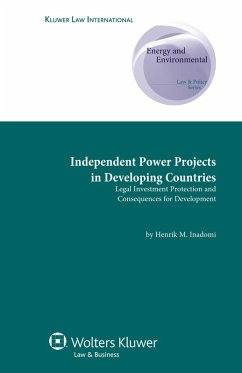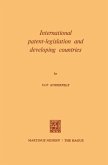For developing countries, a stable and secure supply of electricity is crucial for development, and for their populations' well-being. Since the early 1990s, the main mechanism for constructing power generation facilities in developing countries has been the independent power project (IPP) model, where a foreign investor enters into long term investment contracts with the national utility. This model has succeeded in attracting investment, but raises complex regulatory and contractual challenges in addition to public concerns. This book - drawing on project contracts, the author's interview sources, case law and literature - analyzes in detail the legal investment protection used by IPP investors to ensure sufficient returns and protect their contracted revenue stream. The author examines how the model's corporate / financial structure interlocks with strong contractual rights and with a number of measures used to improve the host country's creditworthiness in the short and long term (including investment guarantees).The second part of the book identifies that the IPP model normally leads to six main consequences for the host developing country:The IPP model has led to private investment, which has increases reliability, modernization and introduced private standards;It contains an intrinsic structural weakness in times of economic downturns;It has shown a tendency to lead to overinvestment in generation capacity;It has shown a tendency to lead to expensive and suboptimal solutions regarding choice of design and technology;The model (and its institutional surroundings) contains insufficient disincentives against moral hazard and exploitative behavior (including corruption); andThe IPP model does not facilitate a further development of the host country's power sector. The author argues that these consequences for development can be improved without detrimentally compromising the private sector's willingness to continue to invest. While pursuing this analysis, the author also explores such issues as the following: ;the web of parties and contracts constituting the IPP model, including the model's risk allocation;an analysis of political risk, including to what extent foreign investors also are protected against commercial and credit risks;the competing needs of predictability and flexibility in long term contracts;how investment arbitration tribunals have reacted both to the change in macroeconomic circumstances caused by the East Asian Crisis of 1997-98, and to numerable and credible allegations of corruption during procurementidentification of factors reducing, or increasing, the IPP model's tendency to fail during severe economic recessions
Dieser Download kann aus rechtlichen Gründen nur mit Rechnungsadresse in A, B, BG, CY, CZ, D, DK, EW, E, FIN, F, GR, HR, H, IRL, I, LT, L, LR, M, NL, PL, P, R, S, SLO, SK ausgeliefert werden.









